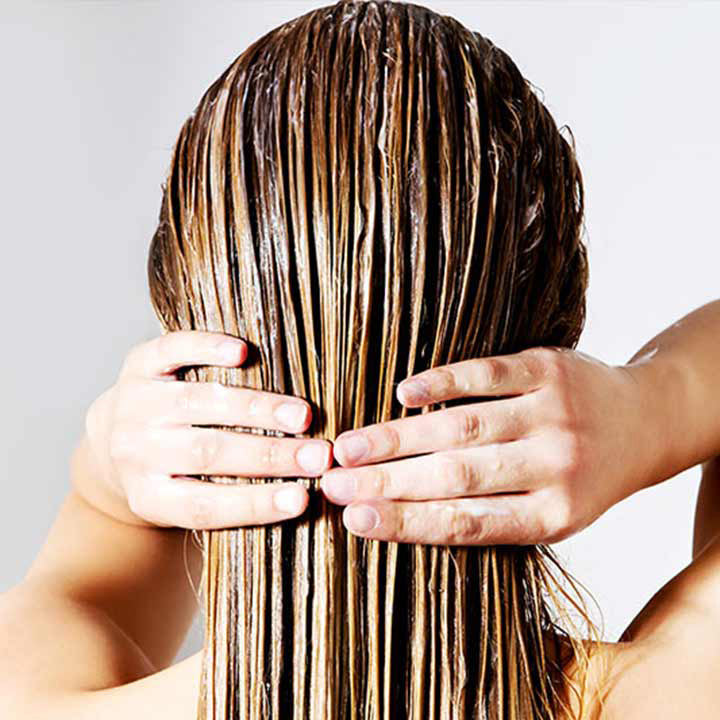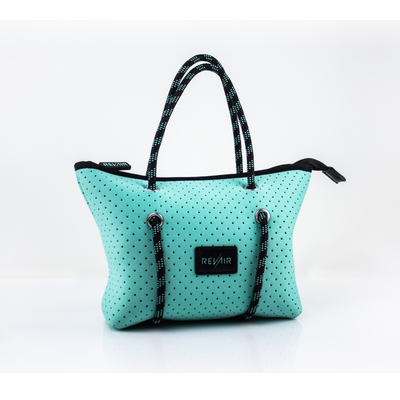
DIY Hair Masks That Will Transform Your Hair
Have you ever felt overwhelmed at the thought of shopping for hair products? There are an innumerable amount of brands and products out there that the search can seem daunting.
It can be even more challenging if you are on a budget but are looking for products to solve specific problems for your hair.
Store bought products can range in price. They also can fall on the spectrum anywhere between all natural to 100% chemicals. The only way to find out is to read the ingredients.
As a rule of thumb, the first few ingredients that are listed account for most of the product as opposed to the last few ingredients that account for much less.
DIY alternatives to store products have saved people a lot of money, so that’s why we took it upon ourselves to help you create your own.
DO IT YOURSELF
DIY stands for “do it yourself.” So instead of spending X amount of dollars in the beauty supply store in hopes of a product working for them, people have created at-home recipes. Thanks to the internet, people have been able to share these recipes with millions of others.
The most important thing about home-made products for many people is that they know for certain that all of the ingredients are all natural without any harmful chemicals that can have negative effects on their scalp or hair.
The type of DIY hair products we will focus on are hair masks. Often times we shampoo and condition our hair but forget that our hair needs more TLC.

HAIR MASKS VS DEEP CONDITIONERS
Both hair masks and deep conditioners can be applied at different stages of your wash routine, depending on your preference. Hair masks and deep conditioners are pretty similar, but they have slightly different benefits and sometimes target different hair concerns.
Usually, deep conditioners are made to soften hair and make detangling easier, whereas a hair mask is a kind of high-powered hair conditioner.
Knowing when to use a hair mask vs a deep conditioner will depend on the state of your hair. For instance, if your hair is relatively healthy, but may appear dry due to the weather or lack of moisture, a deep conditioner will easily help you get your moisture back.
Although the amount of times you should apply hair masks and deep conditioners will vary by hair type, we can say that generally hair masks should be applied about once a week, and a deep conditioner can be applied more often.
Many people with type 3 and 4 hair apply some sort of deep conditioning treatment every time they wash their hair.
DEEP CONDITIONERS
There are three types of conditioners: rinse-out conditioner, deep conditioner, and leave-in conditioner. All three can be used in tangent with each other or by itself, depending on the wash day.
Deep conditioners are used as an additional product to moisturize and repair hair follicles. They should be applied thoroughly and left in your hair anywhere from 20 minutes to overnight.
The harder it is for your hair to retain moisture, the more often you should deep condition your hair.
If your hair is prone to producing a lot of natural oils, you don’t need to deep condition it as frequently.
Deep conditioner is usually recommended on freshly washed hair, where as masks should be applied as a pre-poo.
If you have bleached, relaxed, or otherwise damaged hair, a mask alone, or a mask in conjunction with a deep conditioner is more beneficial for you.
There are many DIY hair masks and deep conditioners that people have concocted. They vary in benefits like to repair hair damage, or add moisture to dry hair, or treat colored hair, or even promote growth.
Our goal is to give you a plethora of DIY masks to try out that won’t break the budget. We’ll break them down by what problems they each aid with.
The type of hair mask that you choose to make will depend on what results you are looking for. Many masks use a variation of the same products.
Protein Treatment Mask
Protein treatments should only be incorporated into your wash routine on an as-needed basis. Protein is essential when it comes to hair, nails, and skin. It is used to build tissue cells that help keep your hair healthy and growing. However, because protein naturally occurs in our hair, (we call it keratin in this form), too much protein can cause more harm than good.
If your hair is pretty healthy, you should only consider getting a protein treatment every few months. If you are unsure, the best way to know is to perform a hair strand test.
The egg hair mask is one of the oldest DIY hair care rituals. To do an egg mask, you simply take one egg, whip it up, and apply it to your hair and scalp.
Let it sit for a half an hour, and then wash it off with a mild shampoo. It is simple and cost-effective because eggs are rich in fat, protein and good for moisturizing the scalp.
A Mask to Repair Split Ends
No matter how well you condition your locks, split ends are inevitable thanks to damaging heat tools, coloring, and the environment. The only way to truly get rid of split ends once and for all is to get a trim, however, a protein treatment can aid in the appearance of them in the meantime.
An Avocado Protein Mask will work. Avocados contain protein and are rich in vitamins A,D, E and B6 as well as magnesium, folic acid, amino acids, copper and iron. All of which can help with both hair growth and nourishment. This recipe calls for:
1 avocado, 1 egg, and a little bit of olive oil
Smash or blend the avocado and mix it with the egg. Add olive oil until the consistency is thicker than your average conditioner. For extra moisture, add a banana to the mask mixture. Apply it throughout your hair and leave it on for about 20 minutes, then rinse thoroughly.
A Mask to Repair Damaged Hair
If you ever have an overripe banana lingering on your kitchen counter, use it in a mask instead of throwing it out. This recipe is simple and only calls for:
1 banana, olive oil

Combine the two ingredients in a bowl and apply to wet hair. Banana is said to help repair damage from chemicals, UV exposure, styling tools, and even chlorine. This duo will also help transform dull hair and boost shine as well as control split ends.
A Mask to Promote Growth
Aloe vera is a popular product used by women with all hair types, but especially type 3 and type 4 hair. It’s the first ingredient in some store-bought hair products. Aloe vera promotes hair growth, prevents itchy scalp, reduces dandruff, improves blood circulation in the scalp, and strengthens hair follicles.
This recipe calls for aloe straight from the aloe vera plant or store-bought gel if you have it on-hand. Increase measurements if you have long hair.

2 tablespoons of pure aloe vera gel, 1/2 teaspoon of cinnamon powder
Combine the aloe with ground cinnamon (which acts as a stimulant). Apply the mask throughout your hair, but focus on your scalp. You may feel a tingling sensation. Cover your head for 10-15 minutes and then rinse thoroughly with the shampoo of your choice.
A Mask for Low Porosity Hair
Did you know that low porosity hair needs heat for the cuticles to lift and for water and products to penetrate?
Using steamers or heating caps for 15-30 minutes allows the hair cuticles to open so that the benefits of the conditioner can get into the hair strands.
Hot oil treatments make a great choice for deep conditioning hair that is low in porosity. Some oils that are good for this type of treatment include grapeseed oil, jojoba oil, argan oil, and coconut oil. You should apply oil treatments to clean and damp or dry hair.
Simply mix your oils of choice in a heat-safe bowl. Create a double boiler situation by adding about an inch of water to a small pot or saucepan, then placing your bowl on top. Heat the oil until it is warm to the touch. Be cautious as to not overheat the oils, as it could burn your scalp.
Test a small amount on your wrist to make sure it's not too hot. Then work the oil into your scalp and all the way down to your ends. Cover your hair for at least 30 minutes or even overnight. Finally, wash out the oils thoroughly by shampooing twice.
A Mask for High Porosity Hair
People with high porosity hair have a harder time retaining moisture. If your hair is always dry, or you have hair damage from excessive use of hot tools, hair dyes, chemical relaxers, sun exposure, you can have a heightened porosity of the hair. A mask that nourishes your hair and replenishes moisture is the key to revitalizing your locks.

A simple two-part mask is a yogurt and honey mask. The fat from yogurt acts as a moisturizing and cleansing agent while raw honey seals in moisture which will help reduce breakage.
If you want to try a more complex version:
raw honey, Greek yogurt, coconut oil, lemon juice, lavender essential oil, and tea tree essential oil
As usual, how much of each ingredient you’ll need will depend on the length and thickness of your hair. Combine all ingredients in a small bowl. Apply thoroughly from the root to the ends of your hair. Leave it in for about half an hour. Rinse and style as usual.
THE RIGHT MASK AT THE RIGHT TIME
Choosing the right hair mask for you depends on the state of your hair. DIY alternatives are a great way to save money, especially for people who use some sort of treatments on their hair every wash day. It’s also a cost-effective way to try different masks.
When the weather transitions into the colder seasons, it’s extra important to keep your hair moisturized. Hair masks and deep conditioners are the most effective way to do so. Whether you have straight, wavy, curly, or coily hair, the TLC you give your hair will make all of the difference.
If you have any questions regarding the best way to take care of your hair, our knowledgeable RevAir team can assist you.
















